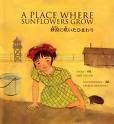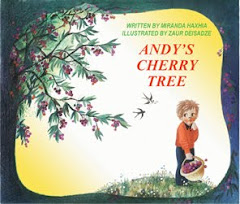Since I quote from the Bible many times
I would like to answer that question.
This post is dedicated to Bible translations.
When I study God's word I use different translations for comparison.
Of course I use the King James Version, it being the first Bible I ever had.
I enjoy using Today's Parallel Bible, as it allows me to easily compare scriptures in four different translations, namely: New International Version, New American Standard Bible,
King James Version, and New Living Translation.
See how easy it is to compare different translations! Every one who seriously studies God's Word should have
Today's Parallel Bible in their library. (My opinion, not scriptural)
(Click on picture for close up)

On occasion I have used the The Kingdom Interlinear Translation of the Greek Scriptures,
to compare the literal translation from Greek to English.
See the above sample. Interesting isn't it!
When you think of translating from one language to another, it is good to remember, sometimes an idea can be conveyed, but not a word. Some languages have words that another language does not have. Also, there are sayings, common in some languages that may not be understood in another language or culture. Remember, the Bible is inspired of God and he wants all peoples and languages to come to Him and be guided by Him. It only makes sense that the God who inspired his word to be written, could also preserve its message through the ages, and make sure that translations convey his message to all honest-hearted people
The Bible has come down to us, from ancient times. It was originally
written in Hebrew, Aramaic and Greek languages. As time went on, to
reach the people in all the earth, it was necessary to translate the
Bible into other languages, beginning with Greek, Latin, German, French,
Spanish, English to name a few.
I was raised with the King James Version of the Holy Scriptures. I am very grateful to have the Bible in the English language. As a young person I read the Bible a little, focusing on the easier parts to understand, the creation account in Genesis and the accounts of Abraham, Issac, Jacob. I would also read, what many call the Gospels: Matthew, Mark, Luke and John, from these I would learn about God's Son, Jesus Christ and the early apostles. My mother would read us Bible Stories, and I appreciated the ones about King David. When very young, I read God's name, from the King James Version, at Psalm 83:18 it reads: "That men may know that thou, whose name alone is JEHOVAH, Art the most High over all the earth."
The King James Version,
was excellent at the time it was translated, however, today's English
is much different. As an example:
If I were to ask you to go to the shambles with me, would you want to go? What if I said, lets go to the butcher shop and get a nice steak? In old English "shambles" means "meat market" (1 Cor. 10:25). Other examples are: "sick of palsy" means "paralytic" (Mark 2:3), "quickeneth" means "makes...alive" (Romans 4:17) and "letteth" means "acting as a restraint" (2 Thess. 2:7).
I do appreciate the sound and literary value of the King James Version,
but to really understand the meaning of God's words, it helps to read
the Bible in the common language we speak today. As a teenager I read the Good News Bible, it is not a translation,
but a paraphrase Bible, it was not very deep when it came to the study
of God's word, I felt it was simplified so much that the full meaning of
the original language was not fully represented. For that reason, paraphrased Bibles are
not reliable, I would recommend you choose a translation to get the
full sense of God's word. As a graduate of High School, I returned to the King James Version and was particularly interested in Jesus' famous Sermon on the Mount. The King James Version of this sermon convinced me that if everyone around the world would apply Jesus' teaching from this sermon there would not be the problems we face in the world today.
You may be interested in reading the following link it gives an excellent summary of
The King James Version- How it Became Popular
I must admit the New World Translation of the Holy Scriptures Study Edition is my favorite translation. I use it the majority of the time, when I quote scriptures on my blog I use this one.
Notice there is margin references to other scriptures in the Bible and footnotes to show what the literal translation, and from which manuscript it came from.
As, a young woman, I started a serious study of God's word, a study that I continue today.
The
New World Translation of the Holy Scriptures is a refreshment to
me, in that it is easy to understand, but not watered down by
simplicity. It is not a paraphrase Bible, but a literal translation from the
original languages, namely Hebrew, Aramaic, and Greek. It was translated
not by one man, but by a committee of men, anointed Christians, who
have a deep respect and love for our Heavenly Father. They endeavor to
please the Sovereign Lord, Jehovah in all things. Also, these men have a
deep and abiding love for all God's creation, especially mankind. Their purpose was to provide a modern English translation, easy to understand, knowing that people are dependent on God's word for their
everlasting salvation. When this committee finished their translation work, they gave all publishing rights to the
Watch Tower Bible and Tract Society of Pennsylvania as a loving gift.
For more specific information on this translation please see the following link:
New World Translation of the Holy Scriptures
Can we really trust the Bible as accurate? How did it survive throughout time? The answer to these questions can be found in the following link.
How the Bible Came to Us
Bible printing was not always easy. In fact, there were many opposers
to printing the Bible in languages of the common people. You may be surprised who the opposers were.
Here is a brief article on a historic place where publishers could print
the Bible freely.
A Refuge for Bible Printing
I hope you enjoy this post and take the time to read the links. You will gain a real appreciation of what some men have done to preserve God's Word for all to understand. Yes, at great cost to early translators and publishers, we have the Bible in the English language. May we continue to appreciate its great value, applying what it says in our everyday lives.


















































































